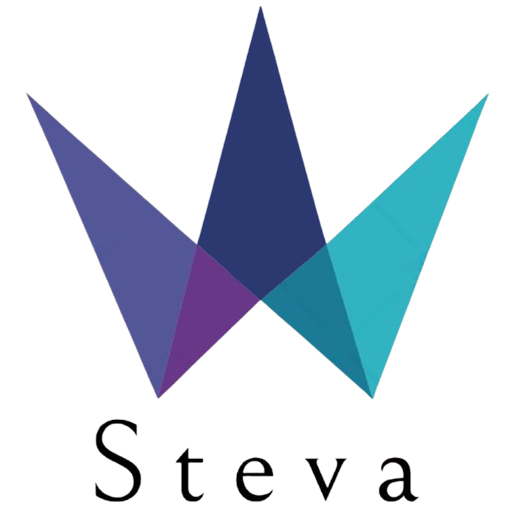Look, I get it. You’re over 50, and society keeps whispering nonsense like, “Just relax, enjoy retirement, take up gardening.” But what if you don’t want to spend your golden years talking to tomatoes?
Here’s the truth, starting a business after 50 isn’t just possible; it’s smart. In fact, studies show that entrepreneurs over 50 have double the success rate of younger founders. (Take that, 20-something tech bros!) You’ve got experience, connections, and, let’s be honest, way more common sense.
Still unsure? Let’s break it down. No boss, no office politics, and best of all, you call the shots. Intrigued? Good. Grab your coffee (or wine, no judgment), and let’s talk about why this could be the best decision of your life.
Why Starting a Business After 50 Makes Sense
By now, you’ve worked for decades. You’ve dealt with bosses who didn’t know what they were doing, commutes that stole years of your life, and corporate nonsense that made you question your sanity. So, why not take control? Starting a business after 50 gives you freedom. No more office politics, no more answering to anyone but yourself, and best of all, you get to keep the profits.
Besides, this isn’t a midlife crisis. It’s a midlife opportunity.
The Surprising Stats About Late-Blooming Entrepreneurs
- More than 25% of new businesses are started by people over 50. (U.S. Census Bureau)
- Entrepreneurs over 50 are twice as likely to succeed than younger founders. (Kauffman Foundation)
- People over 50 hold 70% of U.S. wealth, giving them better access to funds for their businesses. (Federal Reserve)
- Self-employed individuals over 50 report higher job satisfaction than those working traditional jobs. (AARP)
Self-employment ideas for over 50
1. Get Paid to Write from Anywhere
Spent years in an industry? Use that knowledge to write. Businesses need blog posts, articles, and website content, and they prefer experienced voices.
Companies value real-world expertise. Industry professionals earn more than general writers.

How to start:
- Pick a niche: Finance, healthcare, HR, your experience matters.
- Use freelance platforms: Upwork, Fiverr, and LinkedIn attract businesses.
- Create samples: Even a simple blog post shows your expertise.
- Leverage your network: Former colleagues can be your first clients.
You’ve got decades of knowledge. Why not get paid to share it?
2. Online Coaching & Mentoring: Share Your Knowledge and Earn
People pay for guidance, motivation, and expertise. Whether it’s career coaching, life coaching, or business mentoring, there’s demand.
Experience is priceless. People want a mentor who’s been there.

How to start:
- Pick your focus: Career, business, mindset, health? Find your niche.
- Build credibility: Share insights on LinkedIn, YouTube, or a blog.
- Start 1-on-1 coaching: Offer free or low-cost sessions to get testimonials.
- Create a program: Package your knowledge into courses or workshops.
Your experience can change lives, and make you money.
3. Personal Fitness Trainer or Yoga Instructor
People over 50 want to stay active but need guidance. If you love fitness, turn it into a business.
The fitness industry for older adults is booming. By 2027, the global wellness market is expected to hit $7 trillion.

How to start:
- Get certified: NASM, ACE, or Yoga Alliance offer top programs.
- Pick a niche: Strength training, mobility, yoga, or senior fitness.
- Train online or in-person: Zoom sessions work just as well.
- Market smart: Facebook groups, community centers, and word-of-mouth.
Helping others stay fit keeps you healthy, and pays well.
4. Bed & Breakfast or Airbnb Host: Turn Extra Space Into Extra Income
Got a spare room or guest house? Turn it into a money-making asset.
The average Airbnb host in the U.S. makes $13,800 per year, and in hot markets, much more.
I know a retired couple who started renting out their basement suite. Now, they make $1,500+ per month with minimal effort.

How to start:
- List on Airbnb or Vrbo: Easy setup, and they handle payments.
- Make it welcoming: Clean, cozy, with basic amenities.
- Price competitively: Check local listings for rates.
- Automate: Use keyless entry, pre-written guest instructions.
Your extra space could be extra income, without a full-time job.
5. Virtual Assistant: Help Businesses Stay Organized
Small businesses need admin help, and you can provide it remotely.
The virtual assistant industry is worth $100+ billion, with demand rising every year.
A friend of mine, at 52, started as a VA. She now earns $30+ per hour handling emails, scheduling, and bookkeeping.

How to start:
- Pick a service: Email management, calendar scheduling, data entry.
- Learn the tools: Trello, Asana, QuickBooks, Zoom.
- Set your rateL: Start at $20-$40 per hour.
- Find clients: Upwork, Fiverr, LinkedIn, or small business groups.
- Work from home, set your own hours, and get paid to stay organized.
6. Gardening & Landscaping Services
People love a beautiful garden, but most hate the work. That’s where you come in.
Landscaping businesses in the U.S. generate $130+ billion annually. Even part-time, you can make $25-$50 per hour doing something you enjoy.
My father’s friend who is a retired teacher started mowing lawns and planting flower beds. Now he has regular clients and makes an extra $2,000 a month.

How to start:
- Offer basic services: Lawn care, weeding, planting, pruning.
- Specialize: Organic gardening, drought-resistant landscapes, or garden design.
- Use local marketing: Flyers, Facebook groups, word of mouth.
- Set fair rates: Charge by the hour or per project.
If you love working outdoors, this is a perfect side hustle, or even a full-time gig.
7. Life Coaching: Inspire Others with Your Wisdom
By 50+, you’ve gained life experience that others will pay for. Whether it’s relationships, career changes, or personal growth, coaching is a booming industry.
The life coaching market is worth $2+ billion and growing fast. Coaches charge $75-$250 per session.

How to start:
- Pick a niche: Career transitions, confidence, relationships, mindfulness.
- Get certified (optional): ICF or other coaching programs add credibility.
- Build an online presence: Website, LinkedIn, Instagram.
- Offer free sessions first: Get testimonials, then start charging.
If you love helping people, this could be a rewarding and profitable path.
8. Bookkeeping & Accounting: Numbers Never Go Out of Style
Small businesses struggle with finances, that’s where you come in.
The average bookkeeper charges $30-$60 per hour. Even part-time, that’s $2,000+ per month.
I know someone who retired from banking but still earns $50K a year managing books for a few local businesses.

How to start:
- Offer basic services: Payroll, invoicing, tax prep, expense tracking.
- Use accounting software: QuickBooks, FreshBooks, Xero.
- Find clientsNetwork with local businesses, use LinkedIn or Upwork.
If you’re good with numbers, this is steady, flexible income.
9. Home Repair or Handyman Services: Put Your DIY Skills to Work

People always need things fixed. If you’re handy with tools, this is a profitable business.
The handyman industry is worth $4.5+ billion. The average handyman charges $50-$100 per hour.
How to start:
- Offer common services: Furniture assembly, painting, minor plumbing/electrical work.
- Get insured: Protect yourself legally.
- Market locally: Craigslist, Facebook groups, word of mouth.
- Set fair prices: Charge per job or hourly.
If you’re good with tools, this is easy money.
The Financial Side of Starting a Business After 50

Worried about startup costs? You don’t need millions to launch a business. Many successful businesses started with little to no money.
- Bootstrapping: Start small, reinvest profits, and grow gradually.
- Side Hustles: Keep your current job and build your business part-time.
- Grants & Loans: Organizations like AARP offer funding for older entrepreneurs.
- Crowdfunding: Platforms like Kickstarter help raise money for new businesses.
Real-Life Success Stories
Need some inspiration? Here are a few people who started businesses after 50 and killed it:
- Colonel Sanders (yes, the KFC guy) was 62 when he franchised his fried chicken recipe.
- Ray Kroc bought McDonald’s at 52 and turned it into a global empire.
- Vera Wang was 40 when she designed her first dress. Now she’s a fashion icon.
- Martha Stewart didn’t publish her first book until 41, and look where she is now.
See? Age is nothing but a number.
Overcoming Common Fears of Starting a Business After 50

“But I don’t know anything about technology.” So? You can learn. Or better yet, hire someone younger to handle that part.
“I don’t have the money.” You don’t need a fortune to start. Many businesses today require little to no investment upfront. Side hustles exist for a reason.
“What if I fail?” So what? Failure is just a stepping stone to success. The only real failure is never trying.
The Advantages of Starting a Business After 50
1. Experience
You’ve been around the block. You know what works and what doesn’t.
2. Networks
You’ve built connections over the years. Use them.
3. Financial Stability
You likely have savings, a home, and fewer financial risks than younger entrepreneurs.
4. Patience & Resilience
Unlike young founders, you’ve already weathered life’s ups and downs.
5. Work-Life Balance
You’re not chasing promotions anymore. You can build a business that fits your life.
Final Thoughts: It’s Your Time
Starting a business after 50 isn’t just possible, it’s a game-changer. You have the experience, wisdom and resilience that younger entrepreneurs can only dream of. Whether you choose to become a consultant, start an online business or turn a lifelong passion into profit, the opportunities are endless.
Self-employment ideas for over 50 are more diverse than ever, ranging from writing and coaching to bookkeeping and handyman services. The best part? You get to be your own boss, set your own schedule, and finally do work that excites you.
Forget the outdated notion that entrepreneurship is a young person’s game. Many of the world’s most successful business owners started later in life, and so can you. The only question left is: What’s stopping you?





